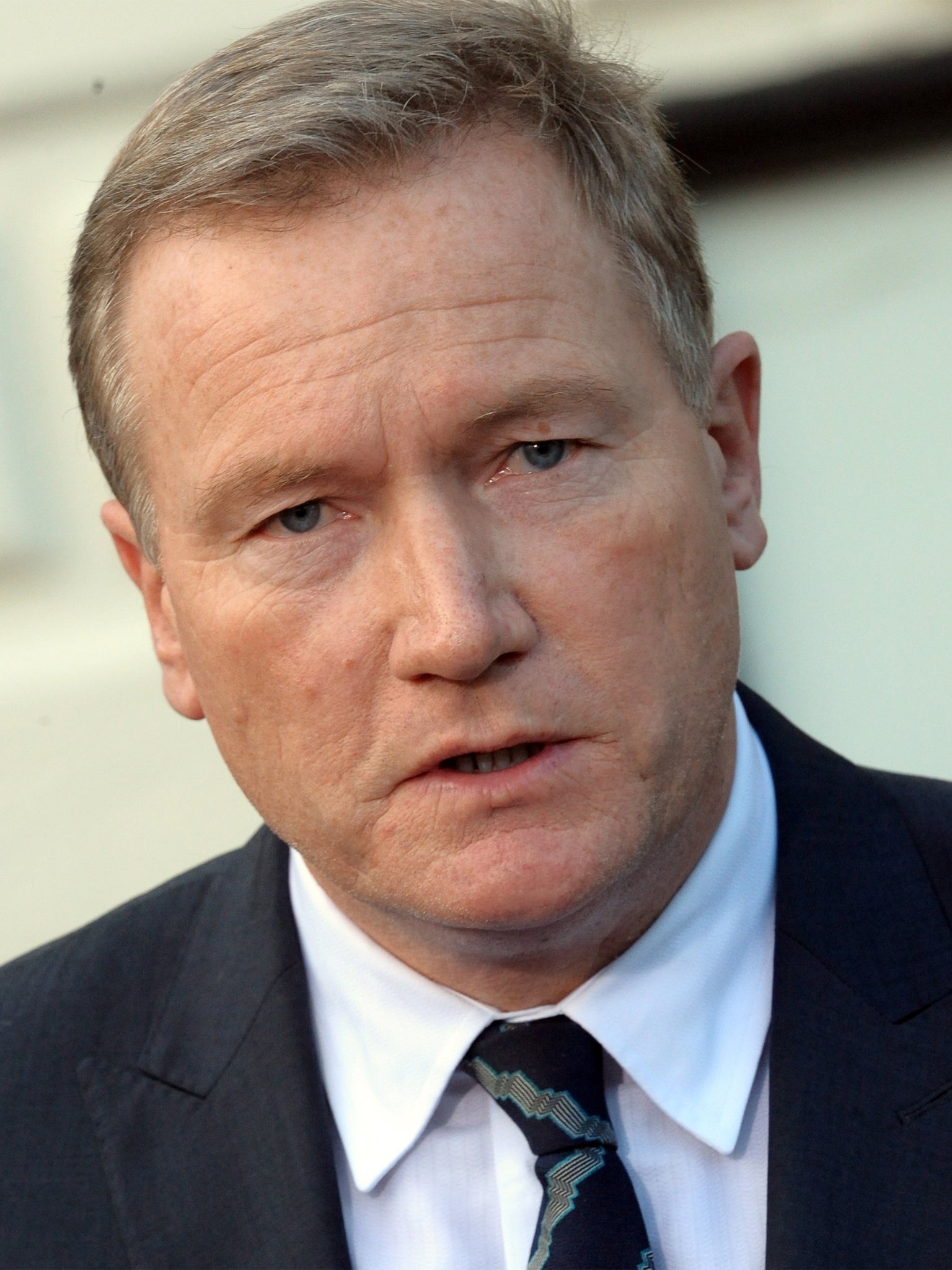Richard Bevan urges FA to stand up to the Premier League if England are to improve
League Managers' chief wants governing body to have more power if England are to improve

It did not really matter in the end that Greg Dyke was detained on business and couldn't make the trip to Ukraine. Outcomes, and the negative responses engendered, were depressingly familiar; poor ball retention, lack of invention, our Premier League all-stars befuddled by the superior movement of supposedly inferior players, a clean sheet the limit of English ambition.
The new Football Association chairman outlined his desire to get to the bottom of the malaise, to fire up the listing flagship that is the national team and conquer all in the 2022 World Cup. His fanciful speech of a week ago outlined areas of concern. He alluded to the counsel taken from key stakeholders in the game to identify areas of concern.
According to one of those organisations whose opinion he sought, England's problem starts with the role occupied by Dyke himself, and the structure over which he presides. The League Managers' Association chief executive Richard Bevan operates out of St George's Park near Burton at the head of a body partly funded by the FA. If England is ever to recover its standing in the game, it is, according to Bevan, the FA itself that must reform, to re-establish control through proper and effective leadership.
"The FA has been decentralised since formation of the Premier League in 1992 and has not been particularly well led," he said. "Administrators have to be relatively quick-moving. The FA has been more of an institution, their decision-making very slow. It will be interesting to see what Greg does.
"In Germany the FA is in control of the game. It tells the Bundesliga what to do. The game should be led by the FA. The success of the England team is the most important thing. Everything will flow from that. But there are conflicts of interest with a league that is the most powerful, saleable in the world. Those conflicts are managed by a strong FA focused on youth development and financial fair play."
Bevan sees the development of St George's Park as an educational hub for the development of coaches as central to Dyke's mission. "The FA in conjunction with all the game's stakeholders, the Premier League, the Football League, the PFA and the LMA must work in conjunction with each other to deliver coaching and management development, because ultimately they are the most important people in the club. Better coaches make better players. Better managers make more stable clubs."
Bevan's vision is already bearing fruit with the launch next month of the Diploma in Football Management, a fully accredited course delivered at St George's Park, aimed at raising the status and profile of club coaches and managers through a rigorous educational programme. "If you want to survive as a football manager you have to be a leader, a manager and a coach. Leadership and management spend [educationally] has been zero. That has been changed.
"The new diploma is effectively a university degree in football management. This place [St George's Park] is not really so much about the development of England teams but of the coaches going through here. This is a university.
"What we are delivering at the LMA is the leadership and management aspect. There is already the Uefa Pro, A and B licence. This is the next stage. The launch of St George's Park, the development of FA learning, the diploma in football management, and the focus on coaching development will force clubs to look harder at their recruitment process."
St George's Park is more than bricks and mortar. It is symbolic of the commitment required. The FA through its learning arm, re-sited from Wembley, has embarked on root and branch change in how coaches are developed. Levels One and Two are being phased out in favour of a new Youth Modules based on something called "appropriate age learning".
English players do not lack technique necessarily. They can all kick a ball. What they lack is a fundamental awareness of space and vision. No amount of industry, and there is plenty of that, can overcome the shortfall in seeing. And until there is joined-up thinking at the top, the systematic overhaul required at grass roots has nil chance of succeeding. Good luck, Greg.
Subscribe to Independent Premium to bookmark this article
Want to bookmark your favourite articles and stories to read or reference later? Start your Independent Premium subscription today.

Join our commenting forum
Join thought-provoking conversations, follow other Independent readers and see their replies